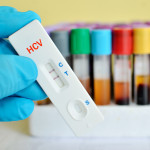Advocates in Delaware have seen a rise in heroin use along with increasing hepatitis C virus (HCV) cases among injection drug users (IDUs) — however, local health departments are apparently not keeping track of either epidemic, which prevents thousands of people from accessing treatment, DelawareOnline.com reports.
The state public health division reports about 1,200 chronic hep C cases a year. However, state health workers claim actual HCV cases are drastically underreported. Delaware is one of seven states that has not consistently given its hep C numbers to the U.S. Centers for Disease Control and Prevention (CDC) since 2009.
Statistics regarding both epidemics are scattered and anecdotal. For example, a site coordinator for an outpatient substance abuse clinic in Newark, Delaware, reported that among the 500 clients they see every day, 300 are IDUs and 85 percent of them test positive for hep C. Another harm reduction site in the city of Wilmington recently tested 100 IDUs for hep C; 90 of them were HCV-positive.
There are no provisions in Delaware state laws requiring providers to test people being treated for opiate addiction for hep C.
State health department officials argue that in 2014, Delaware paid $2.46 million for hep C treatment, which is already straining its budget. Delaware’s Medicaid patients must not be using drugs and alcohol for at least three months before undergoing hep C treatment. Then, in order to get the latest, direct-acting HCV drugs, they also must be diagnosed with late-stage cirrhosis or liver scarring.
In 2014, 184 preauthorization requests were submitted to the state of Delaware for hep C treatment and only 44 were approved.
Advertisement
Advertisement
Advertisement






3 Comments
3 Comments